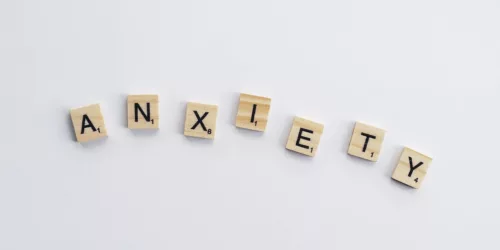Why Is My Heart Skipping Beats ?

Everyone experiences the sensation of their heart skipping a beat at some point in their lives. While it can be unsettling, it’s usually nothing to worry about. In this article, we are going to try to answer “why is my heart skipping beats?”, we’ll explore why your heart might skip a beat, the different types of arrhythmias, and when you should seek medical help. We’ll also discuss treatment options and prevention tips.
Causes of Heart Palpitations
Stress and anxiety
One of the most common reasons people experience heart palpitations is stress and anxiety. When you’re stressed, your body releases adrenaline, which can cause your heart to beat faster and sometimes irregularly.
Caffeine, nicotine, and alcohol
These substances are known to stimulate the heart and can lead to palpitations. Consuming large amounts of caffeine, nicotine, or alcohol can cause the heart to beat irregularly or skip beats.
Hormonal changes
Hormonal changes, such as those experienced during pregnancy, menstruation, or menopause, can cause the heart to beat irregularly.
Medications
Certain medications, including decongestants, asthma inhalers, and some heart medications, can cause heart palpitations.
Dehydration and electrolyte imbalance
Dehydration or an imbalance of electrolytes in your body can lead to heart palpitations. Electrolytes are crucial for maintaining a normal heart rhythm.
Medical conditions
Some medical conditions, such as thyroid disorders, low blood sugar, or anemia, can cause heart palpitations.
Types of Arrhythmias
Premature atrial contractions (PACs)
PACs occur when the atria, the upper chambers of the heart, contract earlier than they should. This can cause a sensation of a skipped or extra heartbeat.
Premature ventricular contractions (PVCs)
PVCs are similar to PACs but occur in the ventricles, the lower chambers of the heart. PVCs are usually harmless, but frequent PVCs may require medical attention.
Atrial fibrillation (AFib)
AFib is an irregular and often rapid heart rate that occurs when the atria quiver instead of contracting effectively.
Supraventricular tachycardia (SVT)
SVT is a rapid heart rate that originates in the atria or the atrioventricular (AV) node. It can cause the heart to beat very quickly and irregularly.
Symptoms of Heart Palpitations
Heart palpitations can cause a variety of sensations, including:
- Skipped or extra heartbeats
- Fluttering or pounding in the chest
- A racing or slow heartbeat
- Shortness of breath
- Dizziness or lightheadedness
When to Seek Medical Help
While most heart palpitations are harmless, it’s essential to consult a healthcare professional if you experience any of the following:
- Frequent or persistent palpitations
- Palpitations accompanied by chest pain, shortness of breath, or fainting
- A history of heart disease or risk factors for heart disease
Diagnosis and Tests
To diagnose the cause of your heart palpitations, a healthcare provider may perform several tests, including:
- Electrocardiogram (ECG or EKG)
- Holter monitor
- Event monitor
- Echocardiogram
- Stress test
The question “why is my heart skipping beats?” can be a little overwhelming, but proper diagnosis and presence of mind will get you through this.
Treatment Options
Lifestyle changes
In many cases, making simple lifestyle changes can help reduce or eliminate heart palpitations. These may include reducing stress, avoiding caffeine and alcohol, and maintaining a healthy diet and exercise routine.
Medications
If lifestyle changes aren’t effective, medications may be prescribed to help control your heart rhythm.
Medical procedures
In some cases, medical procedures may be necessary to treat the underlying cause of your heart palpitations. These can include catheter ablation, implantable devices, or surgery.
Prevention Tips
To help prevent heart palpitations, consider the following tips:
- Manage stress through relaxation techniques, such as meditation or deep breathing
- Limit or avoid caffeine, nicotine, and alcohol
- Stay well-hydrated and maintain a balanced diet
- Exercise regularly, but consult your healthcare provider before starting a new exercise program
- Get enough sleep and maintain a consistent sleep schedule
Conclusion
Heart palpitations, or the sensation of your heart skipping a beat, can be caused by various factors, including stress, caffeine, hormonal changes, and medical conditions. Most palpitations are harmless, but you should consult a healthcare professional if they become frequent or are accompanied by other concerning symptoms. Treatment options may include lifestyle changes, medications, or medical procedures. By following the prevention tips outlined in this article, you can reduce your risk of experiencing heart palpitations and get the answer to the question ” why is my heart skipping beats?”
FAQs
- What is a heart palpitation?
A heart palpitation is a sensation that your heart is skipping a beat, fluttering, or beating irregularly. It often occurs when an electrical signal fires from the wrong place at the wrong time, causing the heart to beat out of rhythm ^(1^).
- Are all heart palpitations dangerous?
No, most heart palpitations are harmless and do not pose a significant health risk. However, if you experience frequent or persistent palpitations, or if they are accompanied by other concerning symptoms, consult a healthcare professional.
- Can stress cause heart palpitations?
Yes, stress and anxiety can cause heart palpitations. When you’re stressed, your body releases adrenaline, which can cause your heart to beat faster and sometimes irregularly.
- How are heart palpitations diagnosed?
A healthcare provider may perform several tests to diagnose the cause of your heart palpitations, including an electrocardiogram (ECG or EKG), Holter monitor, event monitor, echocardiogram, or stress test.
- What lifestyle changes can help reduce heart palpitations?
Managing stress, avoiding caffeine and alcohol, staying well-hydrated, eating a balanced diet, exercising regularly, and getting enough sleep can help reduce or eliminate heart palpitations.






